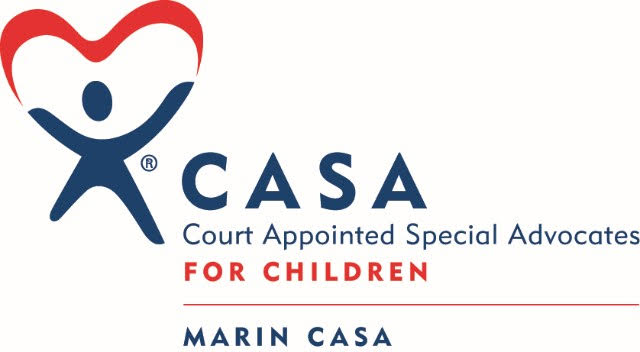Self-Study Books
Take your CASA continued education to the beach, let it lull you to sleep before bed or curl on the couch for some self-betterment! Below is a curated list of books that fulfill Marin CASA Continued Education. Titles with an asterisk* qualify for the Cultural Competency Requirement. Please remember to log your hours in Optima for credit. Each book qualifies for 3 hours of credit.
Demon Copperhead by Barbara Kingsolver
Set in the mountains of southern Appalachia, Demon Copperhead is the story of a boy born to a teenaged single mother in a single-wide trailer, with no assets beyond his dead father’s good looks and copper-colored hair, a caustic wit, and a fierce talent for survival. Relayed in his own unsparing voice, Demon braves the modern perils of foster care, child labor, derelict schools, athletic success, addiction, disastrous loves, and crushing losses. Through all of it, he reckons with his own invisibility in a popular culture where even the superheroes have abandoned rural people in favor of cities.
The Boy Who Was Raised as a Dog: And Other Stories from a Child Psychiatrist’s Notebook — What Traumatized Children Can Teach Us About Loss, Love, and Healing by Bruce D. Perry, Maia Szalavitz
The book uses case studies to show how various childhood traumas affect children into their adulthood. What I found particularly useful is understanding how difficult it is for children who have dealt with trauma to “muscle through” when an event triggers a past trauma and how much effort it takes not to respond negatively once triggered.
What Happened To You: Conversations on Trauma, Resilience and Healing by Bruce D. Perry and Oprah Winfrey
Oprah Winfrey, who experienced childhood trauma and who has interviewed many “victims” and experts in the field of childhood trauma and Bruce Perry who is an expert in the field. While the dialogue focuses on many aspects of childhood trauma, as indicated by the title, the goals is to get practitioners away from asking children and adults who have been subjected to childhood trauma “what’s wrong with you” to focus instead on “what happened to you.” The two also discuss the criticality of support systems, particularly at a young age. I would definitely recommend this “book” to any CASA/practitioner dealing with children impacted by childhood trauma.
To The End of June: The Intimate Life of American Foster Care by Cris Beam
Who are the children of foster care? What, as a country, do we owe them? Cris Beam, a foster mother herself, spent five years immersed in the world of foster care, looking into these questions and tracing firsthand stories. The result is To The End of June, an unforgettable portrait that takes us deep inside the lives of foster children at critical points in their search for a stable, loving family.
Trauma Stewardship: An Everyday Guide to Caring for Self While Caring for Others by Laura van Dernoot Lipsky & Connie Burk
A longtime trauma worker, Laura van Dernoot Lipsky offers a deep and empathetic survey of the often-unrecognized toll taken on those working to make the world a better place. We may feel tired, cynical, or numb or like we can never do enough. These, and other symptoms, affect us individually and collectively, sapping the energy and effectiveness we so desperately need if we are to benefit humankind, other living things, and the planet itself. In Trauma Stewardship, we are called to meet these challenges in an intentional way—to keep from becoming overwhelmed by developing a quality of mindful presence. Joining the wisdom of ancient cultural traditions with modern psychological research, Lipsky offers a variety of simple and profound practices that will allow us to remake ourselves—and ultimately the world.
The Far Away Brothers: Two Young Migrants and the Making of an American Life by Lauren Markham
Growing up in rural El Salvador in the wake of the civil war, the United States was a distant fantasy to identical twins Ernesto and Raul Flores—until, at age seventeen, a deadly threat from the region’s brutal gangs forces them to flee the only home they’ve ever known. In this urgent chronicle of contemporary immigration, journalist Lauren Markham follows the Flores twins as they make their way across the Rio Grande and the Texas desert, into the hands of immigration authorities, and from there to their estranged older brother in Oakland, CA. Soon these unaccompanied minors are navigating school in a new language, working to pay down their mounting coyote debt, and facing their day in immigration court, while also encountering the triumphs and pitfalls of teenage life with only each other for support. With intimate access and breathtaking range, Markham offers an unforgettable testament to the migrant experience.
Troubled by Rob Henderson
An autobiography of a boy growing up in foster care who is ultimately adopted and even then faces shared struggles with his adoptive family. He goes on to college and offers some interesting insights into social standards/beliefs of the “privileged” that harm the most vulnerable.
The Spirit Catches You and You Fall Down: A Hmong Child, Her American Doctors, and the Collision of Two Cultures by Anne Fadiman
Lia Lee was born in 1982 to a family of recent Hmong immigrants, and soon developed symptoms of epilepsy. By 1988 she was living at home but was brain dead after a tragic cycle of misunderstanding, over-medication, and culture clash: “What the doctors viewed as clinical efficiency the Hmong viewed as frosty arrogance.” The Spirit Catches You and You Fall Down is a tragedy of Shakespearean dimensions, written with the deepest of human feeling. Sherwin Nuland said of the account, “There are no villains in Fadiman’s tale, just as there are no heroes. People are presented as she saw them, in their humility and their frailty—and their nobility.
The United States, the richest country on earth, has more poverty than any other advanced democracy. Why? Why does this land of plenty allow one in every eight of its children to go without basic necessities, permit scores of its citizens to live and die on the streets, and authorize its corporations to pay poverty wages?
In this landmark book, acclaimed sociologist Matthew Desmond draws on history, research, and original reporting to show how affluent Americans knowingly and unknowingly keep poor people poor. Those of us who are financially secure exploit the poor, driving down their wages while forcing them to overpay for housing and access to cash and credit. We prioritize the subsidization of our wealth over the alleviation of poverty, designing a welfare state that gives the most to those who need the least. And we stockpile opportunity in exclusive communities, creating zones of concentrated riches alongside those of concentrated despair. Some lives are made small so that others may grow.
The Primal Wound – Understanding the Adopted Child by Nancy Verrier *
Healing Trauma by Dr. Peter A. Levine *
Shame by John Bradshaw
A Place Called Home by David Ambroz
Torn Apart by Dorothy Roberts
Little Fires Everywhere by Celeste Ng
Solito by Javier Zamora
An Identity Erased: My Name is Why by Lemn Sissay
It Ends With US by Colleen Hoover
Far From The Tree By Robin Benway
Twenty Things Adopted Kids Wish Their Adoptive Parents Knew by Sherrie Eldridge
White Oleander by Janet Fitch
All You Can Ever Know by Nicole Chung
Invisible Child: Poverty, Survival & Hope in an American City by Andrea Elliott *
Orphan Train by Christina Kline
All You Could Ever Know by Nichole Chung
Courage to Soar : Simone Biles
Someone Has Led This Child to Believe by Regina Louise *
White Fragility by Robin D’Angelo *
The Warmth of Other Suns by Isabel Wilkerson *
My Grandmother’s Hands: Racialized Trauma and the Pathway to Mending Our Hearts and Bodies by Resmaa Menakem *
The New Jim Crow by Michelle Alexander *
Unorthodox by Deborah Feldman *
The Faraway Brothers by Lauren Markham *
Random Family by Adrian Nicole LeBlanc *
The Fire This Time by Jesmyn Ward *
Reading with Patrick by Michelle Kuo *
The Body Keeps the Score by Bessel Van Der Kolk
Trauma Stewardship by Laura van Dernoot Lipsky
The Bean Trees by Barbara Kingsolver
Under the Skin: The Hidden Toll of Racism on American Lives and on the Health of Our Nation by Linda Villarosa *
Hidden Valley Road – Inside the Mind of an American Family by Robert Kolker
There, There – by Tommy Orange *
The Vanishing Half by Britt Bennett
Between the World and Me by Ta-Nehisi Coates *
Say my Name by Chanel Miller
The Deepest Well by Nadine Burke-Harris
Interior Chinatown by Charles Yu *
No Visible Bruises: What We Don’t Know About Domestic Violence Can Kill Us by Rachel Snyder
Three Little Words by Ashley Rhodes-Courter

